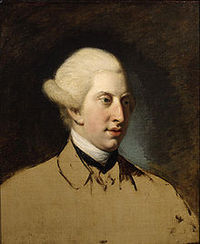Annotation:Gloster House: Difference between revisions
No edit summary |
No edit summary |
||
| (One intermediate revision by one other user not shown) | |||
| Line 1: | Line 1: | ||
{{TuneAnnotation | |||
|f_tune_annotation_title=https://tunearch.org/wiki/Annotation:Gloster_House > | |||
|f_annotation='''GLOSTER HOUSE.''' AKA - "Gloucester House." English, Country Dance Tune (6/8 time). D Major. Standard tuning (fiddle). AABB. In addition to its printing in Samuel, Ann and Peter Thompson's '''Compleat Collection''', vol. 5 (1788), the jig appears in Straight & Skillern's '''Two Hundred & Four Favourite Country Dances, vol. 1''' (London, 1775, p. 38), and Thomas Skillern's '''Skillern's Compleat Collection of Two Hundred & Four Reels...''' (London, 1780, p. 67). The Thompson and Straight/Skillern versions are similar but differ in melodic detail, and the latter adds a third part missing from the Thompson's version. | |||
'''GLOSTER HOUSE.''' AKA - "Gloucester House." English, Country Dance Tune (6/8 time). D Major. Standard tuning (fiddle). AABB. In addition to its printing in Samuel, Ann and Peter Thompson's '''Compleat Collection''', vol. 5 (1788), the jig appears in Straight & Skillern's '''Two Hundred & Four Favourite Country Dances, vol. 1''' (London, 1775, p. 38), and Thomas Skillern's '''Skillern's Compleat Collection of Two Hundred & Four Reels...''' (London, 1780, p. 67). The Thompson and Straight/Skillern versions are similar but differ in melodic detail, and the latter adds a third part missing from the Thompson's version. | |||
<br> | <br> | ||
<br> | <br> | ||
[[File:gloucester.jpg|200px|thumb|left|Prince William Henry]] | [[File:gloucester.jpg|200px|thumb|left|Prince William Henry]] | ||
Gloucester House was a small London house named after Prince William Henry (1743-1805), Duke of Gloucester and Edinburgh (d.1805), who owned it, and who died in it. The front entrance was on Upper Grosvenor Street. William Henry was brother to King George III, and held honorary military titles, but he was most known for his secret marriage 1766 to Maria Walpole, the Dowager Countess of Waldegrave, an illegitimate granddaughter of Sir Robert Walpole. William Henry also had another residence called Gloucester House in the seaside resort of Weymouth on the south coast of England. King George spent some time there in 1789, recovering from porphyra, which, among other symptoms, causes mental disturbance. | Gloucester House was a small London house named after Prince William Henry (1743-1805), Duke of Gloucester and Edinburgh (d.1805), who owned it, and who died in it. The front entrance was on Upper Grosvenor Street. William Henry was brother to King George III, and held honorary military titles, but he was most known for his secret marriage 1766 to Maria Walpole, the Dowager Countess of Waldegrave, an illegitimate granddaughter of Sir Robert Walpole. William Henry also had another residence called Gloucester House in the seaside resort of Weymouth on the south coast of England. King George spent some time there in 1789, recovering from porphyra, which, among other symptoms, causes mental disturbance. | ||
|f_source_for_notated_version= | |||
|f_printed_sources=Straight and Skillern ('''Two Hundred and Four Favourite Country Dances, vol. 1'''), c. 1775; No. 75, p. 38. Thompson ('''Compleat Collection of 200 Favourite Country Dances, vol. 5'''), 1788; No. 168, p. 84. | |||
|f_recorded_sources= | |||
|f_see_also_listing= | |||
}} | |||
------------- | |||
---- | |||
Latest revision as of 00:56, 29 June 2020
X:1 T:Gloucester House M:6/8 L:1/8 R:Jig B:Straight and Skillern – Two Hundred and Four Favourite B:Country Dances, vol. 1 (c. 1775, No. 75, p. 38) Z:AK/Fiddler’s Companion K:D A|ded def|gag g2b|agf edc|ded d2A| ded def|gag g2b|agf edc|d2d d2:| |:A|aba fga|gag efg|fef def|efe A2A| ded def|gag g2b|agf edc|d2D D2:| |:E|=FGA AGF|EFG GFE|DEF FED|CDE A,2A| ded def|gag g2b|agf edc|d2D D2:|]
GLOSTER HOUSE. AKA - "Gloucester House." English, Country Dance Tune (6/8 time). D Major. Standard tuning (fiddle). AABB. In addition to its printing in Samuel, Ann and Peter Thompson's Compleat Collection, vol. 5 (1788), the jig appears in Straight & Skillern's Two Hundred & Four Favourite Country Dances, vol. 1 (London, 1775, p. 38), and Thomas Skillern's Skillern's Compleat Collection of Two Hundred & Four Reels... (London, 1780, p. 67). The Thompson and Straight/Skillern versions are similar but differ in melodic detail, and the latter adds a third part missing from the Thompson's version.

Gloucester House was a small London house named after Prince William Henry (1743-1805), Duke of Gloucester and Edinburgh (d.1805), who owned it, and who died in it. The front entrance was on Upper Grosvenor Street. William Henry was brother to King George III, and held honorary military titles, but he was most known for his secret marriage 1766 to Maria Walpole, the Dowager Countess of Waldegrave, an illegitimate granddaughter of Sir Robert Walpole. William Henry also had another residence called Gloucester House in the seaside resort of Weymouth on the south coast of England. King George spent some time there in 1789, recovering from porphyra, which, among other symptoms, causes mental disturbance.

